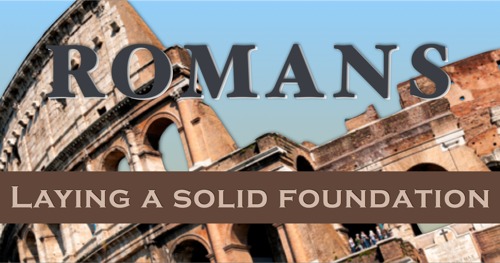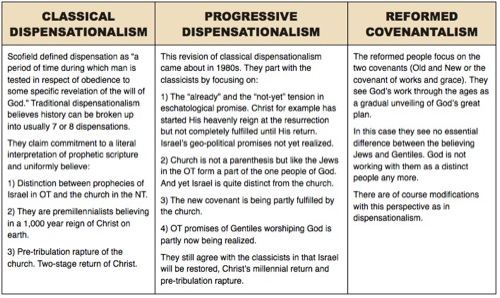
Romans: Laying a Solid Foundation
The Bible Teacher's Commentary
Paul J. Bucknell
Romans 11:16-24
Salvation's Great Plan
Intro Rom 11:11-36 | Rom 11:11-15 | Rom 11:16-24 | Rom 11:25-36
Study questions Romans 11:11-24 | 11:25-36
Romans 11:16-24 "The Gentiles engrafted onto Israel's Olive Tree" is the third of four parts to the BFF Romans 11:11-36 Living Commentary on Romans: Salvations's Great Plan. Paul uses an image of a tree and grafting branches to better understand how God incoporates Jews and Gentiles together.
B) The Gentiles Engrafted onto Israel's Olive Tree (11:16-24)
The Gentiles are intertwined in God's redemptive plan illustrated through two pictures!
Two Illustrations (dough and tree) (11:16)
"... first piece of dough be holy, the lump is also; and if the root be holy, the branches are too"
If one takes a small piece of dough from the whole lump, it should provide a good representation of the whole batch. If the piece is holy, then the whole batch is holy. If the roots from which the whole tree gets its life are holy, then the branches are holy. In other words, no matter which way you look at it, we can detect that the original faith of the Israelites (e.g. Jacob, etc.) as being good and holy, and acceptable to God. The foundation is good enough to build upon rather than to start over.
Broken off (11:17)
"But if some of the branches were broken off" (11:17).
Many Jews were rejected from the covenant blessings because of their disobedience. This state exists until today. It does not speak of the whole nation as can be seen from the word 'some' (see also 11:1).
Grafted in (1:17)
"... you, being a wild olive, were grafted in among them and became partaker with them of the rich root of the olive tree" (11:17)
Paul, using the olive tree analogy, speaks of how the branch grafted in (Gentiles) will gain its life from the root of the tree. The branch is dependent upon the root rather than the root upon the branch. This speaks of how the original community of God's people have adopted the Gentile community into them through Christ rather than becoming something completely new.
Some object to the possibility of grafting a wild olive onto a cultivated olive tree. But they in fact do this. As a result two things happen. First, the wild branch begins to produce good olives. Secondly, the old tree is newly invigorated. This speaks of Israel's renewed interest in Jesus Christ. This root is clearly referred to in Romans 9:1-5.
Careful now! (11:18)
"... Do not be arrogant toward the…"
The Gentiles were evidently displaying some form of pride, but there simply is no basis for this pride. As it already has been pointed out, the branches were dependent upon the roots not vice-a-versa. True, the branches were broken off so that these branches might be inserted, but with such pride, these new branches will be snapped off even quicker (11:18).
Broken off (11:19)
"... Branches were broken off so that I might be grafted in." (11:19)
We can see that Paul accepts a greater plan for the whole. Branches are not broken off with no reason or purpose. In God's economy, all things work together for His greater purpose. This connection between the Jews' rejection and the Gentiles' acceptance is seen in verses 11-14.
By your faith (11:20)
"... You stand only by your faith." (11:20)
In the spirit of chapters 3 and 4 Paul again affirms that we only belong to the community of God by faith. Neither the Jews nor the Gentiles belong without faith; they both belong because they have faith.
Kindness and severity
"Behold then the kindness and severity of God." (11:22)
We must not delude ourselves thinking that God's love will envelope all sin. We see both the kindness and severity of God with the favored people of the Jews as well as with the Gentiles. Only a foolish understanding of God would separate love from truth, kindness from stern consequences.
Check out how this works out in parenting!
Severity stems from God's holy wrath upon unbelievers. Kindness is found for those securely hidden in God's love covenant through faith. Observe this in Exodus 34:6-7 where God describes Himself.
Do not continue
"If they do not continue in their unbelief." (11:23)
What about the security of faith? We see two sides to this here. The one who tastes God's kindness, will be favored if they hold onto their faith (11:22). Verse 23 asserts that if they do not continue in unbelief, that they can be joined back in by faith. This leaves open the door for the unbelieving Jewish people to believe.
Application
How should this passage shape our understanding of our own salvation?
It is quite clear that we might have much godly influence in our past, but if we do not specifically live out our own life of faith, our heritage will not help us. We belong to Christ's body only by faith. We cannot earn it or merely hope for it by being near to it (cf. John 1:12-13). We must believe in Jesus the Messiah.
We should regularly affirm our faith. We should unabashedly live to protect that faith no matter what loses we might encounter: lost of job, reputation, loved ones, etc. Faith is the dividing line between life and death. Wisdom demands that we protect that faith by an unswerving commitment to that belief.
Does this passage speak about losing one's salvation?
One is saved not because one did believe but that he does believe. It is our faith that saves us. This constant faith is what characterizes a true believer. I John 2:19 depicts those that leave the faith were not ever genuinely saved. The teaching of the perseverance of the saints teaches us that genuine belief is a persistent belief (see Hebrews 12).
What does this passage suggest in how we ought to relate with Jews and other religions and philosophies?
We ought to understand that though chosen, our salvation is by God's grace. We are to humbly accept His grace and yet urgently work exhorting unbelievers of all sorts to come to faith in Christ while possible.
At some point when the Jewish people believe upon Christ (cf. 11:12,15) salvation will greatly spread over the earth. Although God might move among the Jews in a particular way, there still remains no essential difference as to how the Jew or Gentile is saved for all are similarly saved through faith in Christ.
Our perspective of the scriptures (i.e. hermeneutical framework)
The most popular prophecy conferences have put a great focus on the future work of God among Jews. Among Christians are several views that greatly shape one's interpretation of the Bible. Notice three main schools of thought in the chart below. Each system develops problems, some more serious, because they pursue their logic beyond the reach and purpose of the scriptures.
CLASSICAL DISPENSATIONALISM
Scofield defined dispensation as "a period of time during which man is tested in respect of obedience to some specific revelation of the will of God." Traditional dispensationalism believes history can be broken up into usually 7 or 8 dispensations.
They claim commitment to a literal interpretation of prophetic scripture and uniformly believe:
1) Distinction between prophecies of Israel in OT and the church in the NT.
2) They are premillennialists believing in a 1,000 year reign of Christ on earth.
3) Pre-tribulation rapture of the church. Two-stage return of Christ. This revision of classical dispensationalism came about in 1980s.
PROGRESSIVE DISPENSATIONALISM
They part with the classicists by focusing on:
1) The "already" and the "not-yet" tension in eschatological promise. Christ for example has started His heavenly reign at the resurrection but not completely fulfilled until His return. Israel's geo-political promises not yet realized.
2) Church is not a parenthesis but like the Jews in the OT form a part of the one people of God. And yet Israel is quite distinct from the church.
3) The new covenant is being partly fulfilled by the church.
4) OT promises of Gentiles worshiping God is partly now being realized.
They still agree with the classicists in that Israel will be restored, Christ's millennial return and pre-tribulation rapture. The reformed people focus on the two covenants (Old and New or the covenant of works and grace). They see God's work through the ages as a gradual unveiling of God's great plan.
REFORMED COVENANTALISM
The reformed people focus on the two covenants (Old and New or the covenant of works and grace). They see God’s work through the ages as a gradual unveiling of God's great plan.
In this case they see no essential difference between the believing Jews and Gentiles. God is not working with them as a distinct people any more. There are of course modifications with this perspective as in dispensationalism.
In this case they see no essential difference between the believing Jews and Gentiles. God is not working with them as a distinct people any more.
-> Continue on reading part 4/4 on Romans 11:25-36 on how God wonderfully fulfills His promises and by His wisdom all Israel will be saved.
BFF -> Moving our generation's heart and mind closer to the Lord through the powerful truth of God!







